Governor Cooper issues a Statewide Stay-at-Home Order Starting Monday at 5 p.m.
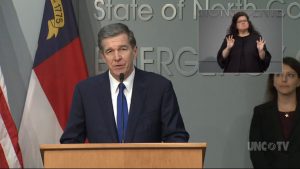 Governor Roy Cooper issued a statewide Stay at Home Executive Order at a Friday afternoon briefing from the state’s Coronavirus Task Force.
Governor Roy Cooper issued a statewide Stay at Home Executive Order at a Friday afternoon briefing from the state’s Coronavirus Task Force.
The order follows Dare County’s “Stay Home – Stay Healthy” declaration, which was also issued on Friday afternoon. For any discrepancies between the two orders, the more restrictive version of the guidelines applies.
The Stay at Home Order is effective at 5 p.m. on Monday and will last for at least 30 days, but N.C. residents are advised to take extreme precautions immediately.
The Stay at Home order mandates that all N.C. residents should stay at home except to conduct essential errands, such as picking up groceries or prescriptions, going to medical appointments that cannot be conducted online, picking up to-go food from restaurants, and exercising only at a safe distance of six feet or more from others.
The order also bans gathering of more than 10 people, and directs everyone to stay at least six feet away from each other.
Businesses that are allowed to remain open under the Executive Order will not need additional permits or permissions to continue to operate.
“North Carolina is now considered by the CDC to have widespread transmission, which means that some people who have the virus do not know where they got it,” said Gov. Cooper. “…The best scientifically-based tool we have to [combat the virus] is to keep our distance and stay at home.”
“We have to act now in the safest, smartest way possible for the chance to save lives. Truly, it is a matter of life and death.”
Gov. Cooper also stated that he hopes N.C. residents will follow the Stay at Home order, but that law enforcement and prosecutors have the authority to charge people who “flagrantly and openly” disobey the order.
In addition, with a record number of residents filing for unemployment, he noted that the “first COVID-19 unemployment benefits will [arrive] next week.”
Click Here to read the Entire Executive Order
ALLOWED ACTIVITIES – The following Section 1 of the Executive Order outlines permitted activities for residents:
Section 1. Stay at Home
- Stay at home or place of residence. All individuals currently in the State of North Carolina are ordered to stay at home, their place of residence, or current place of abode, (hereinafter “residence’) except as allowed in this Executive Order. To the extent individuals are using shared or outdoor spaces when outside their residence, they must at all times and as much as reasonably possible, maintain social distancing of at least six (6) feet from any other person, with the exception of family or household members, consistent with the Social Distancing Requirements set forth in this Executive Order. All persons may leave their homes or place of residence only for Essential Activities, Essential Governmental Operations, or to participate in or access COVID-19 Essential Businesses and Operations, all as defined below.
Individuals experiencing homelessness are exempt from this Executive Order, but are strongly urged to obtain shelter that meets Social Distancing Requirements. Individuals whose residences are unsafe or become unsafe, such as victims of domestic violence, are permitted and urged to leave their home and stay at a safe alternative location.
- Prohibited and permitted travel. Only travel for Essential Activities as defined herein is permitted. People riding on public transit must comply with Social Distancing Requirements to the greatest extent feasible. This Executive Order allows travel into, within, or out of the State to maintain COVID-19 Essential Businesses and Operations and Minimum Basic Operations.
- Leaving the home and travel for Essential Activities is permitted. For purposes of this Executive Order, individuals may leave their residence only to perform any of the following Essential Activities:
- For health and safety. To engage in activities or perform tasks essential to their health and safety, or to the health and safety of their family or household members or persons who are unable to or should not leave their home (including, but not limited to, pets), such as, by way of example only and without limitation, seeking emergency services, obtaining medical supplies or medication, or visiting a health care professional or veteranarian.
- For necessary supplies and services. To obtain necessary services or supplies for themselves and their family or household members or persons who are unable or should not leave their home, or to deliver those services or supplies to others, such as, by way of example only and without limitation, groceries and food, household consumer products, supplies they need to work from home, automobile supplies (including sales, parts, supplies, repair and maintenance), and products necessary to maintain the safety, sanitation, and essential operation of residences or places of employment.
- For outdoor activity. To engage in outdoor activity, provided individuals comply with Social Distancing Requirements and Mass Gatherings, as defined below, such as, by way of example and without limitation, walking, hiking, running, golfing, or biking. Individuals may go to public parks and open outdoor recreation areas. However, public playground equipment may increase spread of COVID-19, and therefore shall be closed. These activities are subject to the limitations on events or convenings in Section 3 of this Executive Order.
- For certain types of work. To perform work at businesses authorized to remain open under Section 2 of this Executive Order (which, as defined below, includes Healthcare and Public Health Operations, Human Services Operations, Essential Governmental Operations, and Essential Infrastructure Operations) or to otherwise carry out activities specifically permitted in this Executive Order, including Minimum Basic Operations.
- To take care of others. To care for or assist a family member, friend, or pet in another household, and to transport family members, friends, or pets as allowed by this Executive Order. This includes attending weddings and funerals provided individuals comply with Social Distancing Requirements and Mass Gatherings as set forth below.
- Place of worship. Travel to and from a place of worship.
- To receive goods and services. To receive goods and services provided by a COVID-19 Essential Business or Operation.
- Place of residence. To return to or travel between one’s place or places of residence for purposes including, but not limited to, child custody or visitation arrangements.
- Volunteering. To volunteer with organizations that provide charitable and social
ESSENTIAL BUSINESSES – The following Section 2 of the Executive Order outlines what is defined as COVID-19 Essential Businesses and Operations
In order to slow the spread of COVID-19, it is necessary to reduce the instances where individuals interact with one another in a manner inconsistent with the Social Distancing Requirements set forth below.
Many of those interactions occur at work. At the same time, it is necessary that certain businesses, essential to the response to COVID-19, to the infrastructure of the State and nation, and to the day-to-day life of North Carolinians, remain open.
In light of the above considerations, non-essential business and operations must cease. All businesses and operations in the State, except COVID-19 Essential Businesses and Operations as defined below, are required to cease all activities within the State except Minimum Basic Operations. All COVID-19 Essential Businesses and Operations are directed, to the maximum extent possible, to direct employees to work from home or telework.
For purposes of this Executive Order, a COVID-19 Essential Business and Operation includes the following businesses, not-for-profit organizations and educational institutions.
- Businesses that meet Social Distancing Requirements. Businesses, not-for-profit organizations or educational institutions that conduct operations while maintaining Social Distancing Requirements:
- Between and among its employees; and
- Between and among employees and customers except at the point of sale or purchase.
- Businesses operating in CISA identified sectors. Businesses, not-for-profit organizations or educational institutions operating in the federal critical infrastructure sectors as outlined at https://www.cisa.gov/identifying-critical-infrastructure-during covid-19 or any subsequent guidance issued by the U.S. Department of Homeland Security that amends or replaces said guidance.
- Healthcare and Public Health Operations. Healthcare and Public Health Operations includes, but is not limited to: hospitals; clinics; dental offices; pharmacies; laboratories and laboratory service providers; public health entities, including those that compile, model, analyze and communicate public health information; pharmaceutical, pharmacy medical device and equipment, and biotechnology and agricultural biotechnology companies (including operations, research and development, manufacture, and supply chain); organizations collecting blood, platelets, plasma, and other necessary materials; obstetricians and gynecologists; eye care centers, including those that sell glasses and contact lenses; dietary supplement retailers; naturopathic healthcare providers; home healthcare services providers; local management entities/managed care organizations (LME/MCO); mental health and substance use providers; other healthcare facilities and suppliers and providers of any related and/or ancillary healthcare services, and entities that transport and dispose of medical materials and remains.
Specifically included in Healthcare and Public Health Operations are manufacturers, technicians, logistics, and warehouse operators and distributors of medical equipment, personal protective equipment (PPE), medical gases, pharmaceuticals, blood and blood products, vaccines, testing materials, laboratory supplies, cleaning, sanitizing, disinfecting or sterilization supplies, and tissue and paper towel products. Healthcare and Public Health Operations also includes veterinary care and all healthcare services provided to animals. Healthcare and Public Health Operations shall be construed broadly to avoid any impacts to the delivery of healthcare, or public health operations broadly defined. Healthcare and Public Health Operations does not include those businesses ordered to close by Executive Order No. 120.
- Human Services Operations. Human Services Operations includes, but is not limited to: long-term care facilities; child care centers, family child care homes; residential settings and shelters for adults, seniors, children, and/or people with developmental disabilities, intellectual disabilities, substance use disorders, and/or mental illness; transitional facilities; home-based settings to provide services to individuals with physical, intellectual, and/or developmental disabilities, seniors, adults, and children; field offices that provide and help to determine eligibility for basic needs, including food, cash assistance, medical coverage, child care, child support services, vocational services, rehabilitation services; developmental centers; adoption agencies; businesses that provide food, shelter, social services, transportation and other necessities of life for economically disadvantaged individuals, individuals with physical, intellectual, and/or developmental disabilities, or otherwise needy individuals.
Human Services Operations shall be construed broadly to avoid any impacts to the delivery of human services, broadly defined.
- Essential Infrastructure Operations. Essential Infrastructure Operations includes, but is not limited to: food and beverage production, distribution, fulfillment centers, storage facilities, construction (including, but not limited to, construction required in response to this public health emergency, hospital construction, construction of long term care facilities, public works construction, school construction, and essential commercial and housing construction); building and grounds management and maintenance including landscaping; airport operations; operation and maintenance of utilities, including water, sewer, and gas; electrical (including power generation, distribution, and production of raw materials); distribution centers; oil and biofuel refining; roads, highways, railroads, and public transportation; ports; cybersecurity operations; flood control; solid waste and recycling collection and removal; and internet, video and telecommunications systems (including the provision of essential global, national and local infrastructure for computing services, business infrastructure, communications, and web-based services).
(including the provision of essential global, national and local infrastructure for computing services, business infrastructure, communications, and web-based services).
Essential Infrastructure Operations shall be construed broadly to avoid any impacts to essential infrastructure, broadly defined.
- Essential Governmental Operations. Essential Governmental Operations means all services provided by the State or any municipality, township, county, political subdivision, board, commission or agency of government and needed to ensure the continuing operation of the government agencies or to provide for or support the health, safety and welfare of the public, and including contractors performing Essential Governmental Operations. Each government body shall determine its Essential Governmental Operations and identify employees and/or contractors necessary to the performance of those functions.
For purposes of this Executive Order, all first responders, emergency management personnel, emergency dispatchers, legislators, judges, court personnel, jurors and grand jurors, law enforcement and corrections personnel, hazardous materials responders, child protection and child welfare personnel, housing and shelter personnel, military, and other governmental employees working for or to support COVID-19 Essential Businesses and Operations are categorically exempt from this Executive Order.
This Executive Order does not apply to the United States government. Nothing in this Executive Order shall prohibit any individual from performing or accessing Essential Governmental Operations. Nothing in this Executive Order rescinds, amends, or otherwise modifies Section 2 of Executive Order No. 120.
- Stores that sell groceries and medicine. Grocery stores, pharmacies, certified farmers’ markets, farm and produce stands, supermarkets, convenience stores, and other establishments engaged in the retail sale of groceries, canned food, dry goods, frozen foods, fresh fruits and vegetables, pet supplies, fresh meats, fish, and poultry, prepared food, alcoholic and nonalcoholic beverages, any other household consumer products (such as cleaning and personal care products), and specifically includes their supply chain and administrative support operations. This includes stores that sell groceries, medicine, including medication not requiring a medical prescription, and also that sell other non-grocery products, and products necessary to maintaining the safety, sanitation, and essential operation of residences and COVID-19 Essential Businesses and Operations.
- Food, beverage production and agriculture. Food and beverage manufacturing, production, processing, and cultivation, including farming, livestock, fishing, forestry, baking, and other production agriculture, including cultivation, marketing, production, and distribution of animals and goods for consumption; and businesses that provide food, shelter, services and other necessities of life for animals, including animal shelters, rescues, shelters, kennels, and adoption facilities.
- Organizations that provide charitable and social services. Businesses as well as religious and secular not-for-profit organizations, including food banks, when providing food, shelter, social services, and other necessities of life for economically disadvantaged or otherwise needy individuals, individuals who need assistance as a result of this emergency, and people with disabilities.
- Religious entities. Religious facilities, entities, groups, gatherings, including funerals. Also, services, counseling, pastoral care, and other activities provided by religious organizations to the members of their faith community. All of these functions are subject to the limitations on events or convenings in Section 3 of this Executive Order.
- Media. Newspapers, television, radio, film, and other media services.
- Gas stations and businesses needed for transportation. Gas stations and auto supply, sales, tire, auto-repair, roadside assistance and towing services, farm equipment, construction equipment, boat repair, and related facilities and bicycle shops and related facilities.
- Financial and insurance institutions. Bank, currency exchanges, consumer lenders, this is limited to, pawnbrokers, consumer installment lenders and sales finance lenders, credit unions, appraisers, title companies, financial markets, trading and futures exchanges, affiliates of financial institutions, entities that issue bonds, related financial institutions, and institutions selling financial products. Also insurance companies, underwriters, agents, brokers, and related insurance claims and agency services.
- Home improvement, hardware and supply stores. Home improvement, building supply, hardware stores, and businesses that sell building materials and supplies, electrical, plumbing, and heating materials.
- Critical trades. Building and construction tradesmen and tradeswomen, and other trades, including but not limited to, plumbers, electricians, exterminators, cleaning and janitorial staff for commercial and governmental properties, security staff, operating engineers, HVAC, painting, cleaning services, moving and relocation services, landscaping and other service providers who provide services that are necessary to maintaining the safety, sanitation, and essential operation of residences and COVID-19 Essential Businesses and Operations. This includes organizations that represent employees.
- Mail, post, shipping, logistics, delivery, and pick-up services. Post offices and other businesses that provide shipping and delivery services, and businesses that ship or deliver groceries, food, alcoholic and non-alcoholic beverages, goods, vehicles or services to end users or through commercial channels.
- Educational institutions. Educational institutions including public and private pre-K-12 schools, colleges, and universities for purposes of facilitating remote learning, performing critical research, or performing essential functions, provided that the Social Distancing Requirements set forth below of this Executive Order are maintained to the greatest extent possible. This Executive Order is consistent with and does not amend or supersede prior Executive Orders regarding the closure of public schools.
- Laundry services. Laundromats, dry cleaners, industrial laundry services, and laundry service providers.
- Restaurants for consumption off-premises. Restaurants and other facilities that prepare and serve food, but only for consumption off-premises, through such means as in-house delivery, third-party delivery, drive-through, curbside pick-up, and carry-out. Schools and other entities that provide free food services to students or members of the public may continue to do so under this Executive Order when the food is provided for carry-out, drive through or delivery. This Executive Order is consistent with and does not amend or supersede prior COVID-19 related Executive Orders restricting the operations of restaurants and temporarily closing bars.
- Supplies to work from home. Businesses that sell, manufacture, or supply office supply products or other products needed for people to work from home.
- Supplies for COVID-19 Essential Businesses and Operations. Businesses that sell, manufacture, support, or supply other COVID-19 Essential Businesses and Operations with the service or materials necessary to operate, including computers, audio and video electronics, household appliances; payroll processing and related services; IT and telecommunication equipment; elections personnel and election-related equipment supplies; hardware, paint, flat glass, electrical, plumbing and heating material; sanitary equipment; personal hygiene products, food, food additives, ingredients and components; medical and orthopedic equipment; optics and photography equipment; and diagnostics, food and beverages, chemicals, soaps and detergent.
- Transportation. Airlines, taxis, automobile dealers, transportation network providers (such as Uber and Lyft), vehicle rental services, paratransit, trains, marinas, docks, boat storage, and other private, public, and commercial transportation and logistics providers, and public transportation necessary to access COVID-19 Essential Businesses and Operations.
- Home-based care and services. Home-based care for adults, seniors, children, and/or people with developmental disabilities, intellectual disabilities, substance use disorders, and/or mental illness, including caregivers such as nannies who may travel to the child’s home to provide care, and other in-home services including meal delivery.
- Residential facilities and shelters. Residential facilities and shelters for adults, seniors, children, pets, and/or people with developmental disabilities, intellectual disabilities, victims of domestic violence, people experiencing homelessness, substance use disorders, and/or mental illness.
- Professional services. Professional services, such as legal services, accounting services, insurance services, professional engineering and architectural services, land surveying services, real estate services (including brokerage, appraisal and title services) and tax preparation services.
- Manufacture, distribution, and supply chain for critical products and industries. Manufacturing companies, distributors, and supply chain companies producing and supplying essential products and services in and for industries such as pharmaceutical, technology, biotechnology, healthcare, chemicals and sanitization, waste pickup and disposal, agriculture, food and beverage, transportation, energy, steel and steel products, petroleum and fuel, mining, construction, communications, as well as products used or commonly sold by other COVID-19 Essential Businesses and Operations.
- Defense and military contractors. Defense and military contractors that develop products, processes, equipment, technology, and related services that serve the United States military, national defense, and national security interests.
- Hotels and motels. Hotels and motels, to the extent used for lodging and delivery or carryout food services.
- Funeral Services. Funeral, mortuary, cremation, burial, cemetery, and related services. These services are subject to the limitations on events or convenings in Section 3 of this Executive Order.
- Additional COVID-19 Essential Retail Businesses. Additional COVID-19 Essential Retail Businesses are:
- Electronic retailers that sell or service cell phones, computers, tablets, and other communications technology; Lawn and garden equipment retailers; Book stores that sell educational material; Beer, wine, and liquor stores; Retail functions of gas stations and convenience stores; Retail located within healthcare facilities; Pet and feed stores.
Businesses excluded from the list of COVID-19 Essential Businesses and Operations set forth this Executive Order who believe that they may be essential may direct requests to be included to the North Carolina Department of Revenue (the “Department”). The Department may grant such request if it determines that it is in the best interest of the State to have the business continue operations in order to properly respond to this COVID-19 pandemic. The Department shall post on its website a point of contact and procedure for businesses seeking to be designated as essential. A business that has made a request to the Department to be included as a COVID-19 Essential Business or Operation may continue to operate until that request is acted upon.
Businesses that are not COVID-19 Essential Businesses and Operations are required to cease all activities within the State except Minimum Basic Operations, as defined below. Businesses that are not COVID-19 Essential Businesses and Operations should comply with Social Distancing Requirements, to the maximum extent possible, when carrying out their Minimum Basic Operations.
As used in this Executive Order, “Minimum Basic Operations” include the following:
- i) The minimum necessary activities to maintain the value of the business’s inventory,
preserve the condition of the business’s physical plant and equipment, ensure security, process payroll and employee benefits, or related functions.
- ii) The minimum necessary activities to facilitate employees of the business being able to continue to work remotely from their residences.
- Notwithstanding any other provision of this Executive Order, the businesses, not-for-profit organizations and educational institutions that were ordered closed by Executive Order Nos. 118 and 120 shall remain closed.




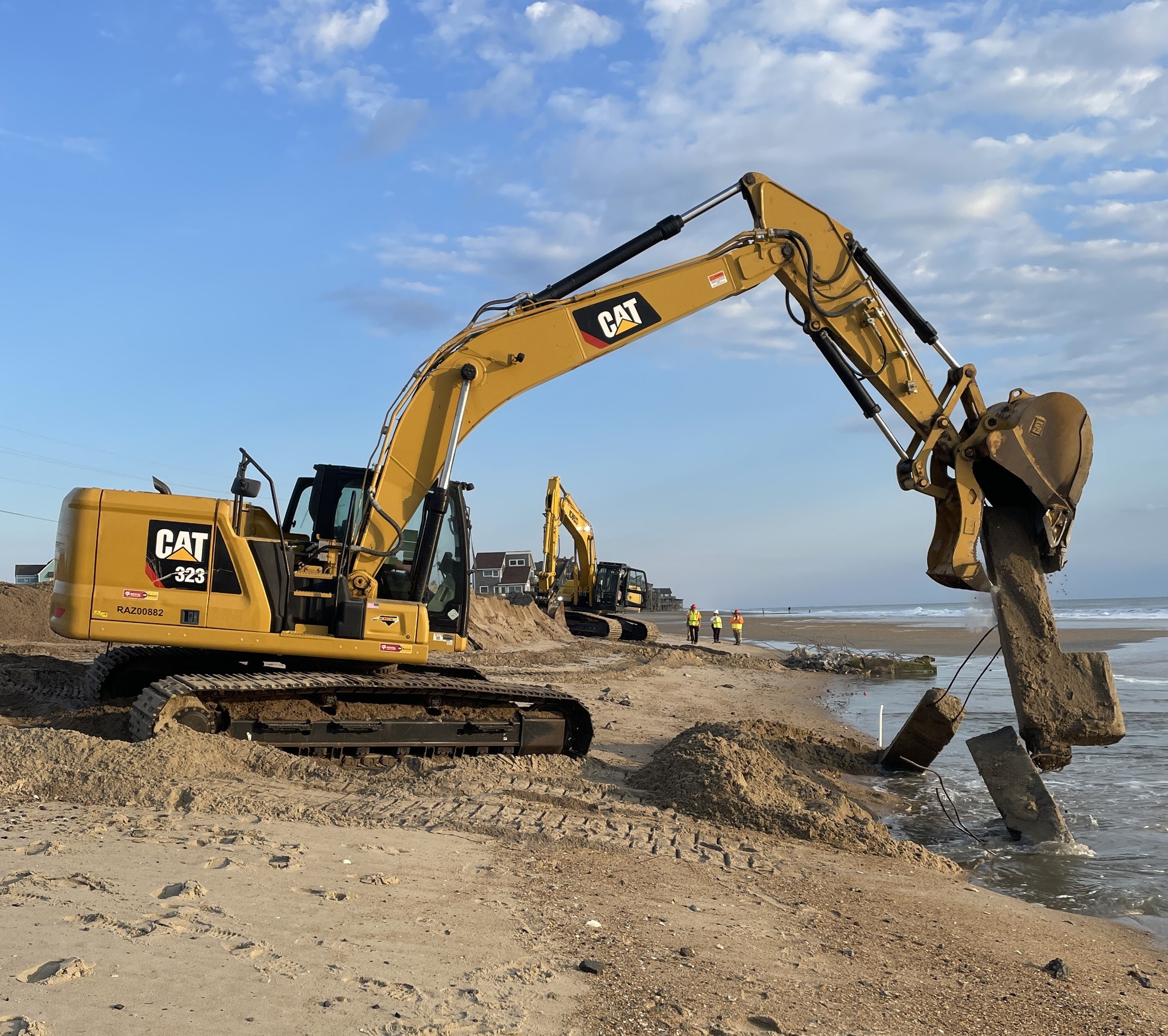
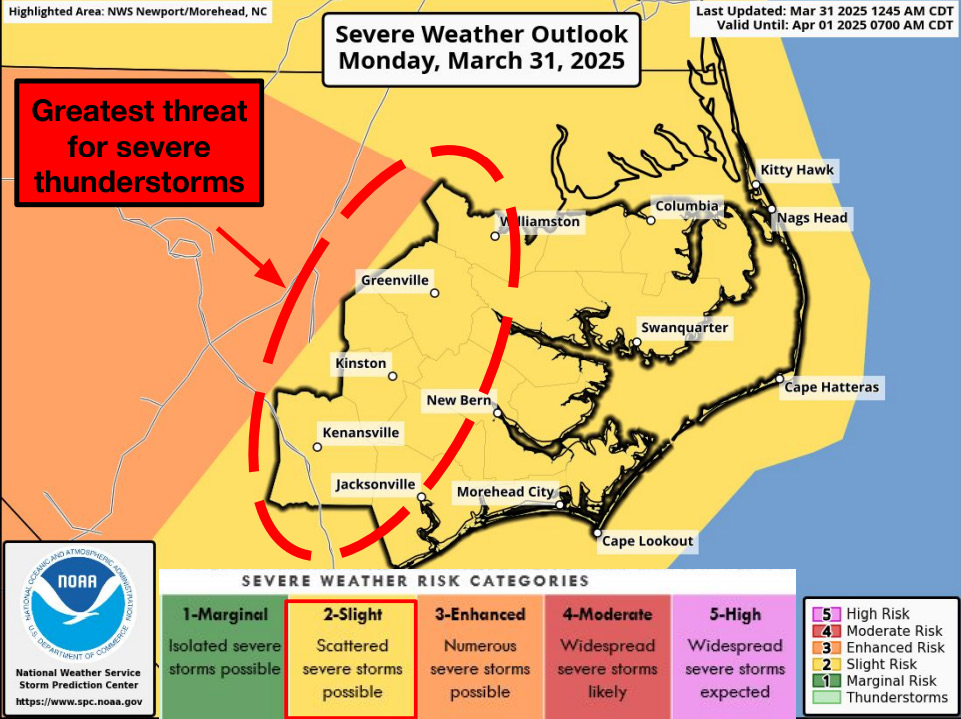
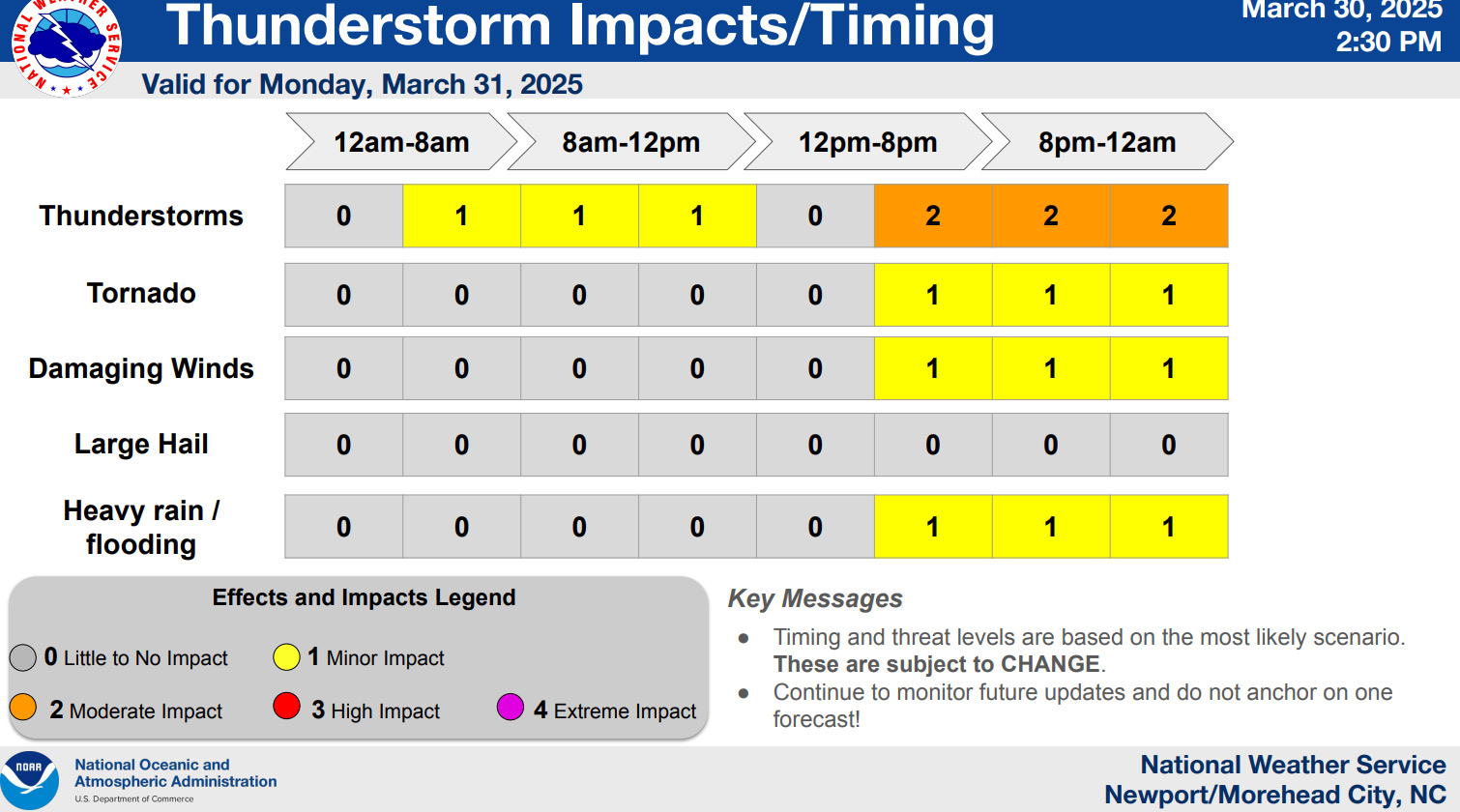
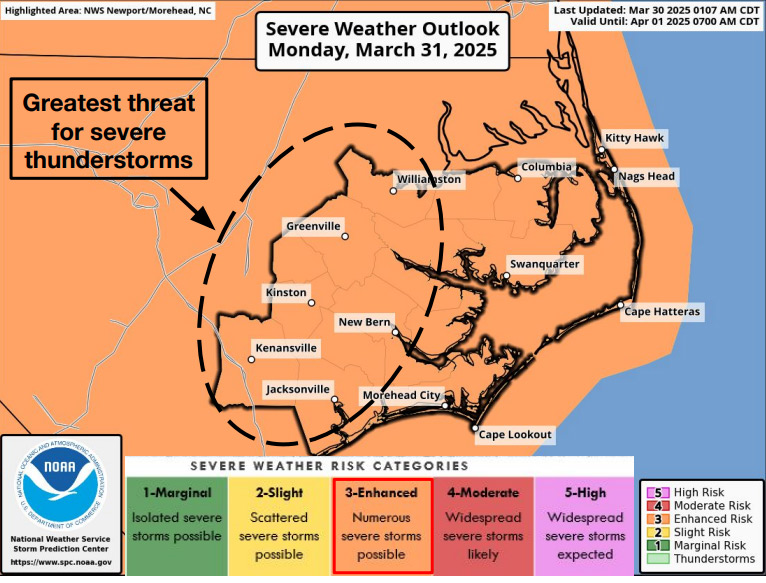
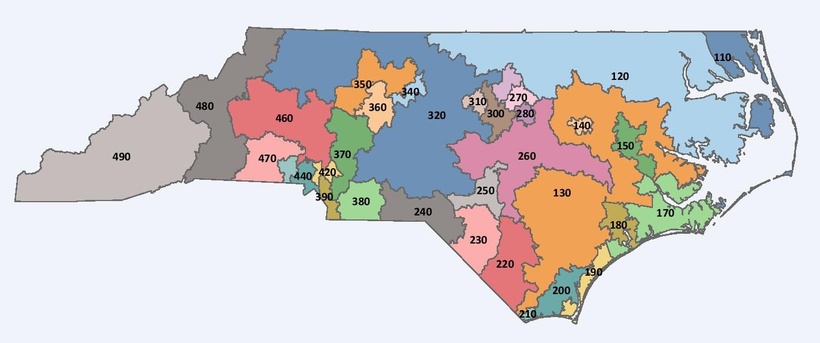
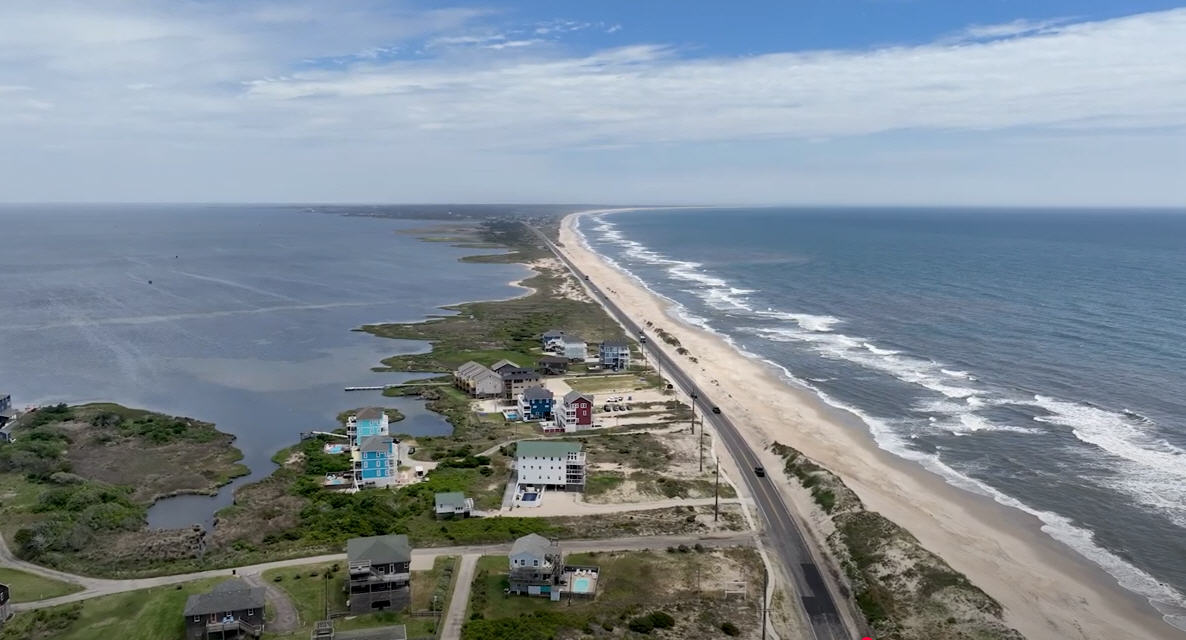
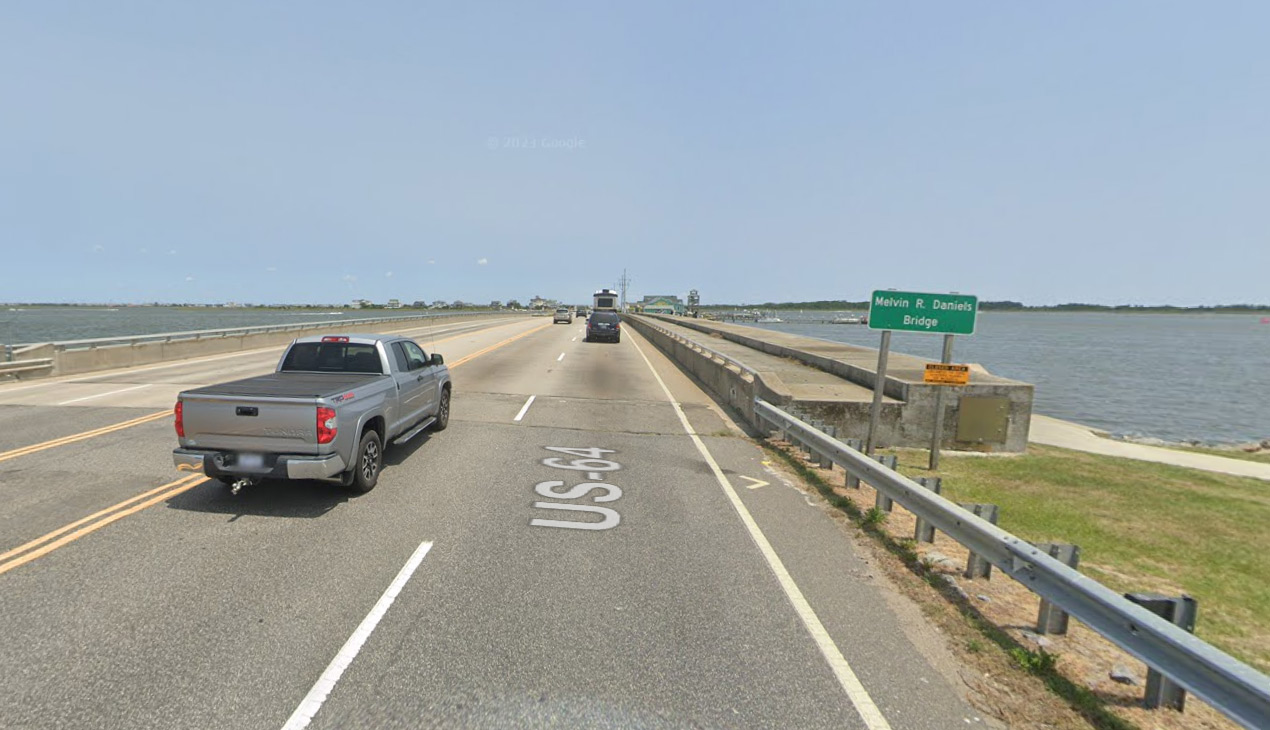
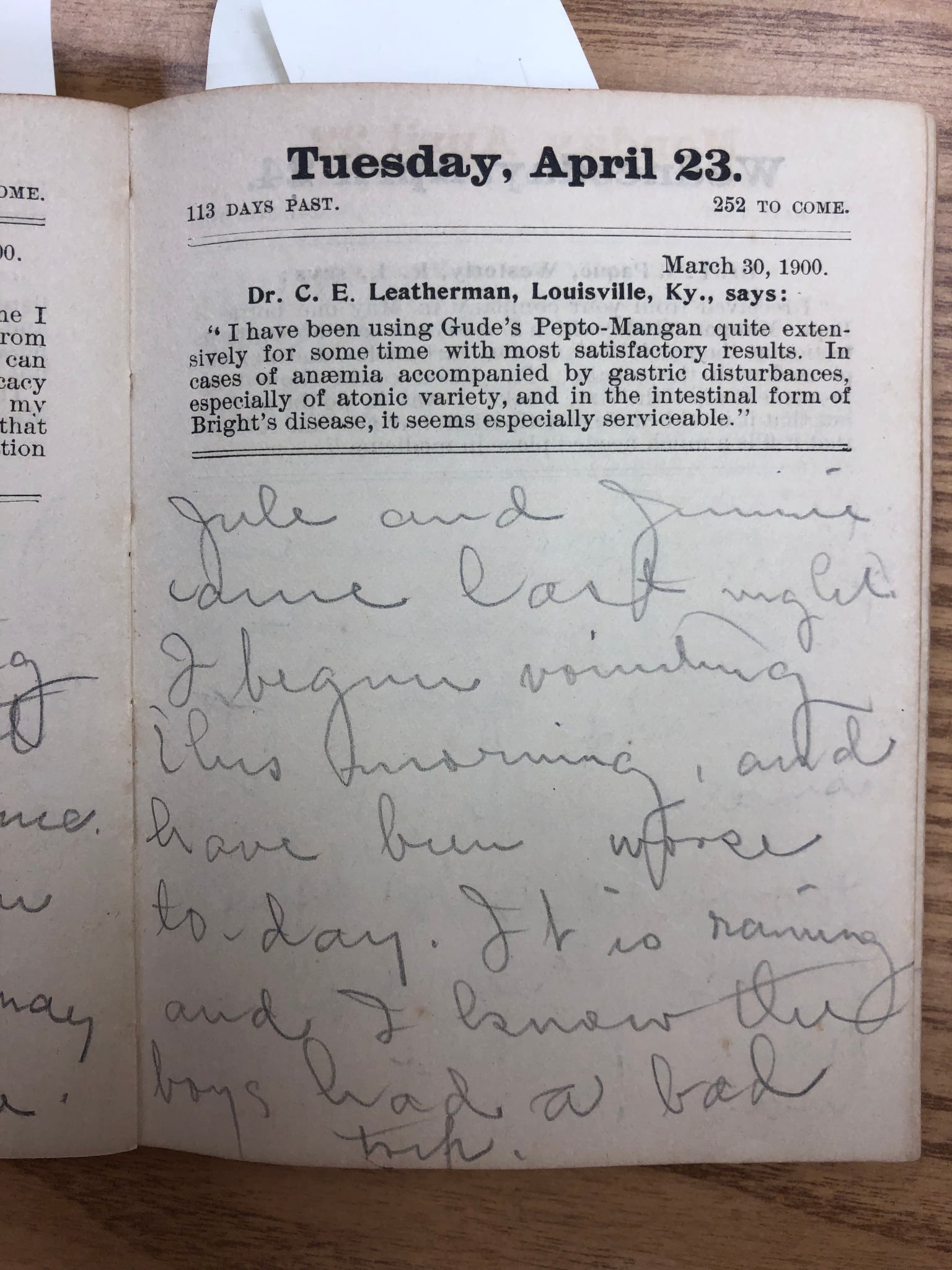

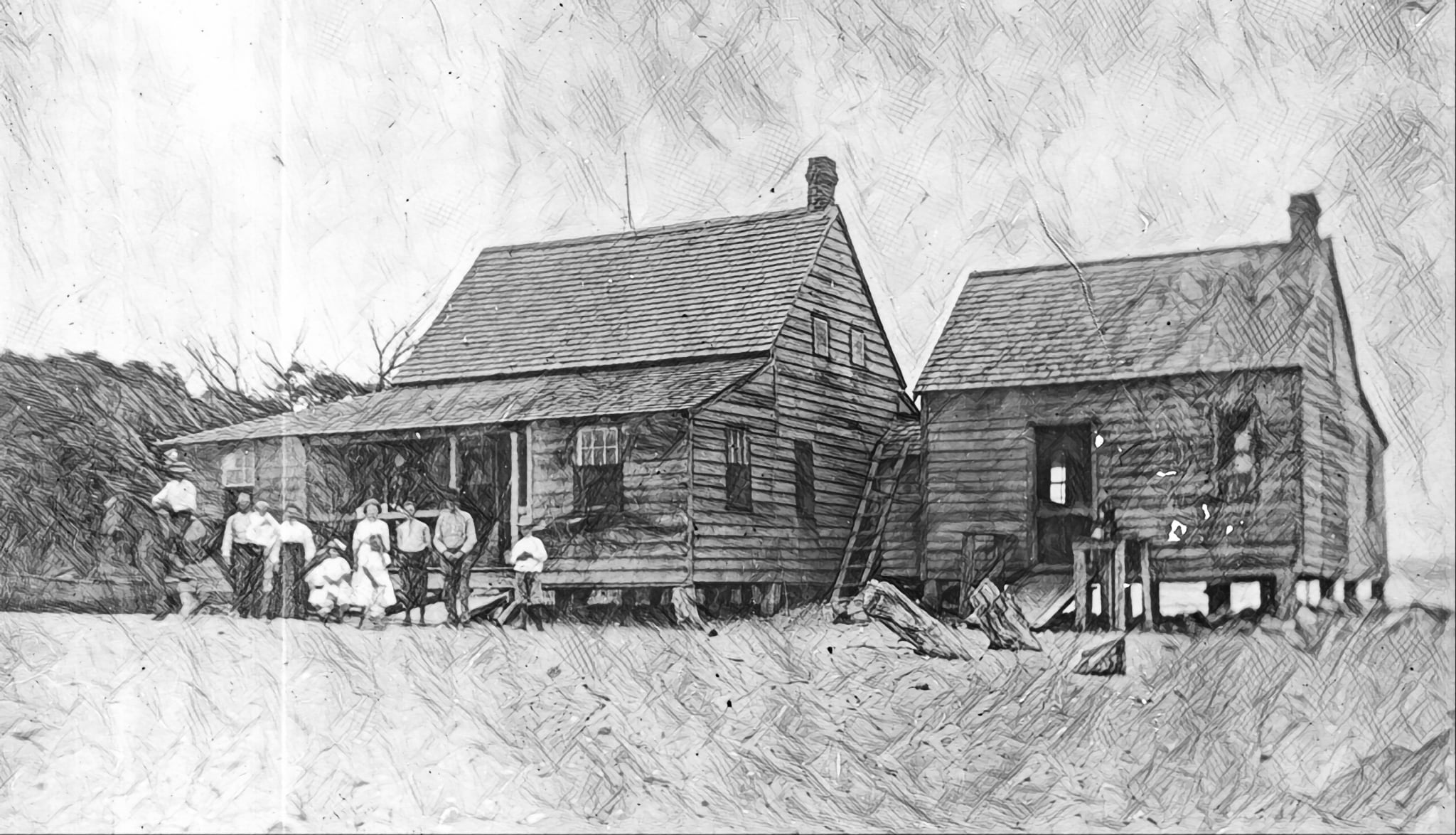


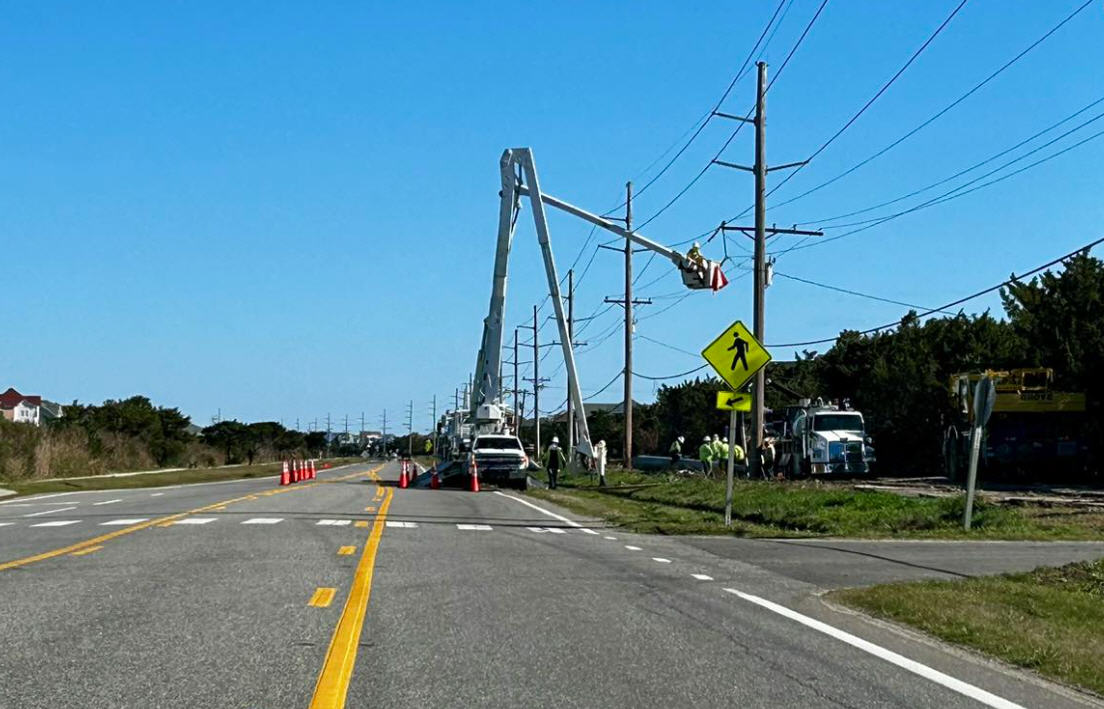
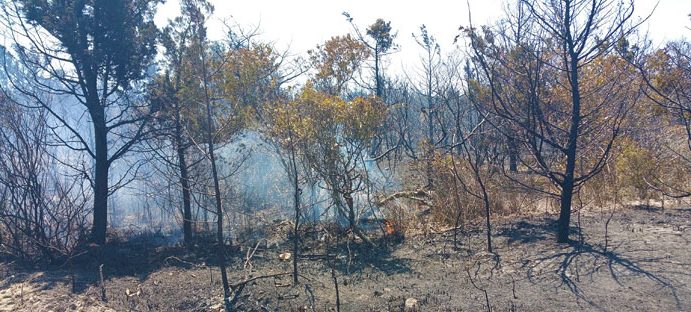


Yup, it’s SOOOOO critical that we stay home that it can wait ’till Monday! I wish people would remember that we have a Constitution.
The Democrats policy, ‘the only way to save America is to destroy America’.
Woah! Trying to save American lives is ridiculous!
Blame this all on the Democrats! How dare they try to make the state of a North Carolina safe from the spread of this invisible disease!
Do your civil duty and stay home to save American lives.
‘the only way to save America is to destroy America’.
Trump started that 3 1/2 years ago when he gutted the CDC and cut their funding.
That is what is happening here. Except it is the tourists and yankees that are destroying lives, neighborhoods, communities, livelihoods and everything else special about Hatteras.
The same people who keep the economy running on Hatteras island?
No, our island economy was much better off before being overbuilt and overpopulated by those mentioned.
Buddy- I feel sorry for you having to resort to using civil war era slurs to try to make a point. No, the economy was not better without tourists. The entire county is 100% tourist driven, including the housing market. Every time this area gets shut off, there are pleas for help and people who go out of business. You are a sad person and I feel very sorry that you don’t have anything better to do than spend time raging on a comment board. I hope that you stay safe and healthy.